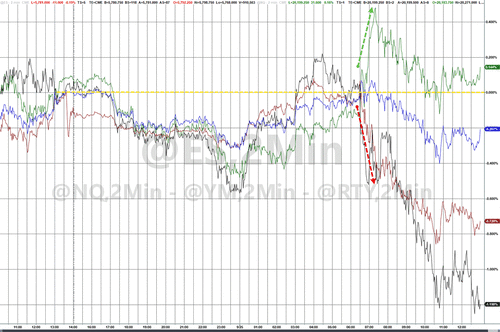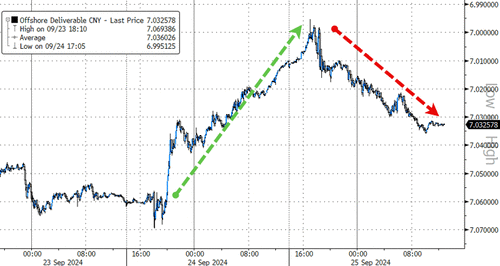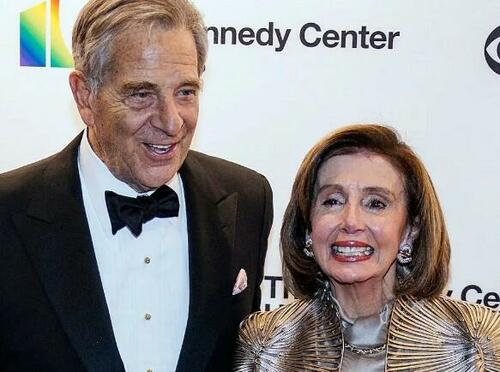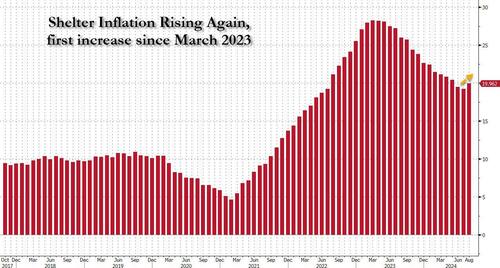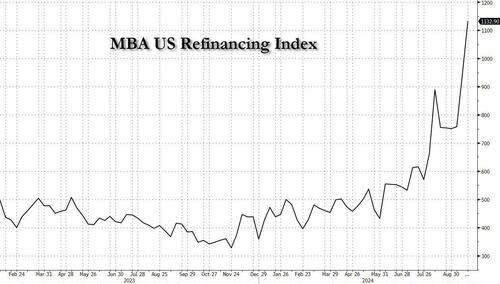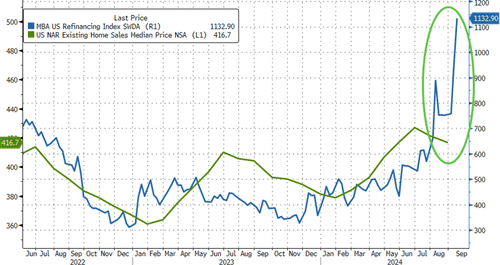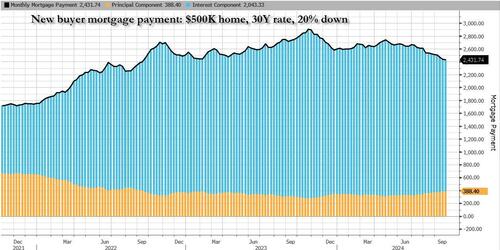Authored by David Rose via the American Institute for Economic Research (AIER),
It’s hard to imagine a starker difference in political visions than between Trump-Vance and Harris-Walz. This could get ugly, so now is a good time to remind ourselves of what it is that holds us together as a nation and a people.

America is a nation of immigrants who had very different ideas about all sorts of things, but no group was able to impose its culture on the others to a significant degree. We naturally presume this produced a melting pot that united us by creating a new alloy out of many different metals.
But the real key to America’s success was not uniting us by homogenizing us. It was the emergence of a uniquely American culture that held us together through shared moral beliefs and principles, while allowing us to retain our personal individuality.
In America, heavy investment into our civic culture through these shared moral beliefs and principles produced the freest thinking minds in human history. The founders recognized this and worked hard to preserve it. This is why they wrote a constitution that provided a formula for a government that was to serve the citizens and not the other way around.
When Alexis Tocqueville published his first installment of “Democracy in America” in 1835, he argued that America had a distinctive culture that made it especially capable of self-government. There was something about the American culture that led to the proliferation of mediating institutions that in turn led to an extraordinary level of organic (uncoerced) cooperation. That, in turn, made Americans uniquely well-suited to practice democracy.
But just exactly how did that happen?
As America grew, specific religious beliefs became increasingly subordinated to an overarching moral belief structure. In short, not doing the moral don’ts (not lying, not stealing, etc.) became increasingly viewed as a universal moral duty and a public matter, while doing the moral dos (being conscientious, being generous, etc.) became things that were encouraged but otherwise viewed as a purely private matter.
This was not by design. It happened because, as the scale and scope of economic activity increased, it became increasingly impractical to abide by moral standards for behavior based on promoting, rather than protecting, the welfare of others around us.
This shift in moral thinking began long ago in the West. As people in the West lived in ever larger groups, religious wisdom began to reflect and reinforce this shift. As but one example Hillel (הלל), a towering figure in first century Talmudic thought, proclaimed:
“That which is hateful to you, do not do to your fellow [man]. That is the whole Torah; the rest is the explanation; go and learn.”
Hillel was effectively saying that avoidance of harm is what the Torah is about, not benevolence, which is consistent with not doing the moral don’ts taking precedence over doing the moral dos.
Because of America’s extraordinary diversity, the idea that we should concern ourselves with not doing the moral don’ts above all flowered most fully. This was also consistent with America’s early Protestant nature, which stressed that one’s conscience should guide moral decisions rather than any kind of religious formulary.
This was very important, because our ability to trust others we don’t know has nothing to do with hoping they’ll be nice to us by doing the moral dos to promote our welfare. In a large society it can’t. Small group trust is lovely, but it doesn’t scale up.
When you walk the streets of Manhattan, it is not your belief that everyone you pass is so inclined to do nice things for everyone else that it makes you feel safe enough to go about your business. It is your belief that they won’t do the moral don’ts.
Since not doing moral don’ts involves not taking actions, it doesn’t require resources. This means we can all obey all the moral don’ts at the same time. The moral don’ts therefore provide a basis for trust that can scale up.
The rise of civilization is the story of people living in ever-larger groups. In places like America, culture evolved even further, producing the moral belief that we should never do moral don’ts and use government, if necessary, to enforce them. Meanwhile, obeying the moral dos is to be treated as a purely private matter. In other words, we should mind our own business. This is so deeply ingrained in the American ethic that for us it’s like water to fish.
Being confident that, in most contexts, no harm would come to us led to a habit of extending trust to strangers unless there was a good reason not to. That is the essence of a high trust society. Since trust is a powerful catalyst to voluntary cooperation, this unleashed the power of freely directed cooperation as never before in human history.
Tocqueville’s own thesis for American success notes that many of our mediating institutions are highly trust dependent. These institutions were voluntary associations which is why they were epiphenomenal with a culture of freedom. It is difficult to imagine that such voluntary associations would last long if everyone in them was highly suspicious of everyone else.
But America’s cultural glue, which makes all of this possible, is weakening. Today’s civic and moral educators don’t stress the primacy of not doing the don’ts over doing the moral dos.
Instead, they preach that certain kinds of positive moral actions are duties—like driving an electric car. This is a prescription for a virtue-signaling arms race wherein people indulge their moral vanity by doing whatever they can to appear morally superior to everyone else.
Not so long ago in America it was considered rude to ask anyone other than one’s inner social circle which positive moral actions they undertook. But it now happens every second of every day on social media, in our grade schools, on our campuses, and even at work.
What really matters for trust is not what you do, but what you don’t do. But since inactions are not observed, they cannot be rewarded with social approval. Just imagine the reaction you’d get by bragging about the lies you didn’t tell, the property you didn’t steal, and the people you didn’t murder.
To earn explicit social approval, one must do the moral dos. So today, Americans loudly tout their doing of moral dos—whether that’s using the “right” pronouns or boycotting the “wrong” people. But they are basically touting that they are following the company line, so the price of social approval is steadfast conformity that can hardly be described as genuine freedom.
In most American schools today, children are taught that they should care enough about everyone else to be willing to think, say, and do approved things to produce conformity sufficient to unite us. But that’s not what made America a free and prosperous country. Getting along well enough to freely cooperate even with strangers, while preserving our individuality, is.
Unless we return to prioritizing not doing the moral don’ts over doing the moral dos, our cultural glue will weaken further, and we will become less trusting and therefore less willing to cooperate outside our most intimate social circles. We will increasingly be unable to do that which made America the envy of the world.



